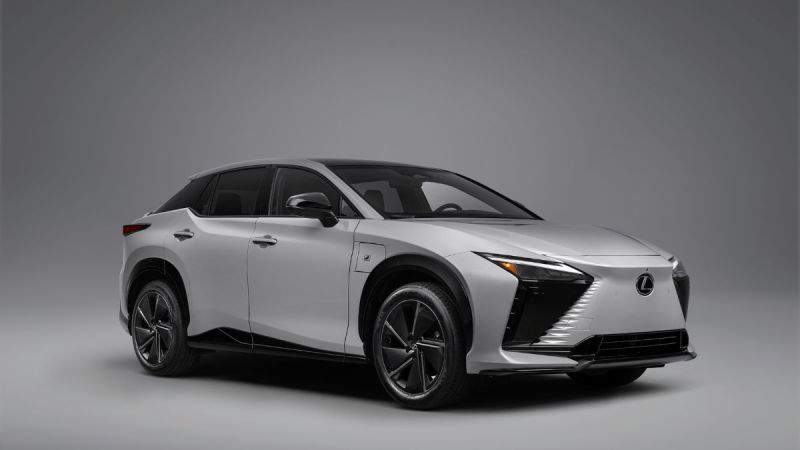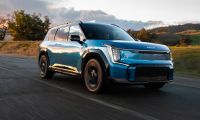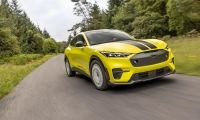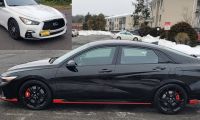There’s a moment when loyalty turns into disillusionment, and for many longtime car enthusiasts, that moment often comes with a new model that feels more like a marketing move than a leap forward. As someone who follows those conversations closely, I came across a post this morning in the “RIVIAN Electric Vehicles Discussion” group on Facebook that perfectly captured this shift. It was written by Michael Rose, a former die-hard Lexus fan whose recent post wasn’t just a product critique, but a statement about how a brand had lost its way for Michael. His frustration wasn’t aimed at a single car, but at what Lexus started to represent in the EV age.
Michael wrote: “I used to be a Lexus fanboy all the way up to the LC500. I jumped to Rivian because I wanted a good EV and Lexus had lost their way. Today there is even more proof that they, and others in the EV space, are lost. Here's today’s advertisement email: 'The 2026 RZ is set to arrive in fine style. It has an improved manufacturer-estimated combined driving range rating of up to 300 miles and an exceptional number of other enhancements. It also introduces the first-ever RZ 550e F SPORT AWD with an impressive 402 net combined horsepower and paddle shifters that replicate the feel and sound of traditional gears.'”
At first glance, the specs do sound decent. Coming in with 402 horsepower and 300 miles of range, it should be solid talking points. But Michael's disillusionment runs deeper than numbers. It’s about identity.
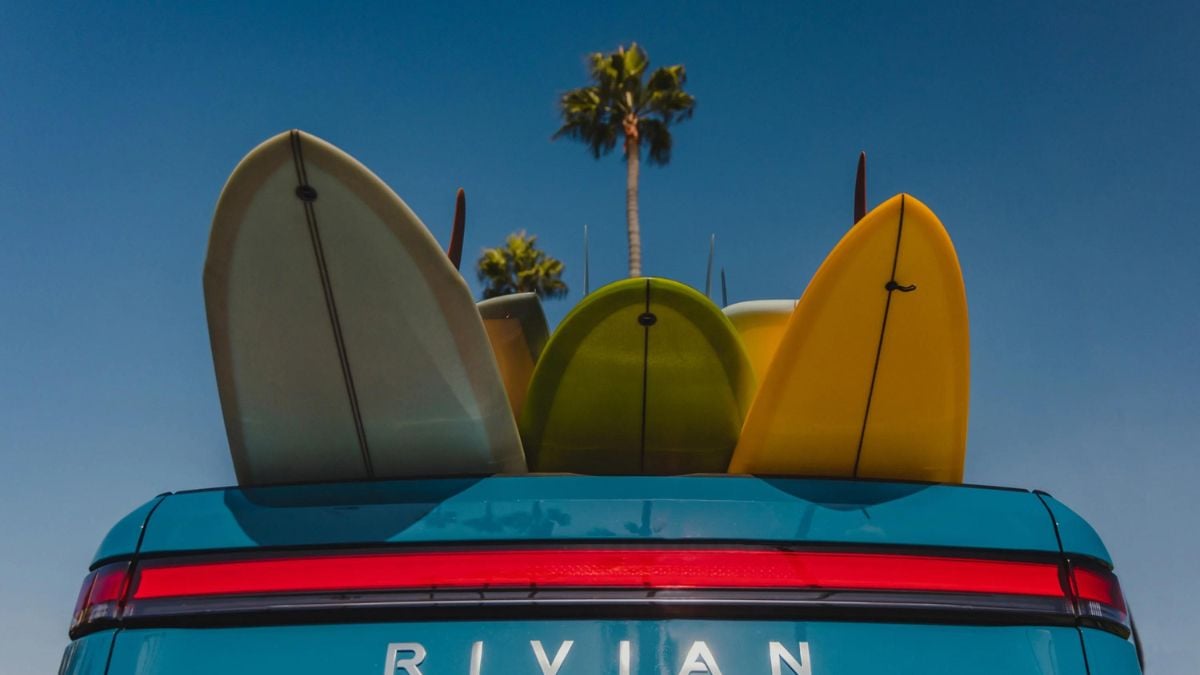
The Community Reacts: Are EV Expectations Changing?
This isn’t a solo sentiment either. The comment section under Michael’s post had some thoughts about what consumers expect from an electric vehicle, and what happens when a legacy automaker misses the mark.
Gerad Woolley jumped in, stating, “Personally, I think Rivian and Tesla are in their own league right now.” His comment captures a growing consensus that newer EV-first brands have simply done a better job delivering products that feel purpose-built for this era.
Colin Moloney, however, offered a more nuanced take. “I don’t think it’s a complete miss. The horsepower numbers are disappointing, but the paddle shifters that replicate traditional gears could be a good feature. Hyundai has a great implementation of this on the Ioniq 5 N and it’s actually fun to drive and easy to turn off when you don’t want it. A Rivian isn’t meant to be sporty so I don’t see the need to have it on these beasts, but the 5 N is a very good track car and paddles make it that much more fun. Complaints about sound are silly. Turn it off if you don’t like fake engine noises.”
Colin’s reference to the Hyundai Ioniq 5 N's innovative paddle shifters brings up an important point that not all simulated experiences are bad. In fact, when done well and with intention, they can enhance the driving experience. But the problem I sense from Michael's post here isn’t just the presence of paddles or fake noise, but about the fact that Lexus seems unsure of who its EV audience really is. Trying to appeal to driving purists in a vehicle that doesn’t deliver on the rest of the performance experience comes across as inconsistent.
Then there’s the practical perspective. Tyler Albert Nelson kept it blunt: “Boring. I see no mention of cost though, and that's the real deal breaker on EVs.” Tyler has a point. If you’re going to introduce simulated excitement in an EV, you’d better make sure everything else — from price to performance to purpose — lines up. And if it doesn’t, consumers like Michael could continue to walk away.
How Rivian Captures What Legacy Brands Are Missing
We’ve seen this happen before. Rivian, despite its own set of growing pains, has drawn in more than a few ex-Tesla and legacy brand owners who felt underwhelmed by traditional carmakers’ electric efforts. In one story I covered, a former EV skeptic shared how a Rivian R1T won them over entirely, offering a seamless and futuristic experience that felt natural rather than forced. It’s no coincidence that owners like Michael are making the jump and not looking back.
What’s particularly interesting here is how Lexus is trying to thread the needle between its ICE legacy and the EV future. The RZ 550e’s fake gear sounds are clearly designed to satisfy drivers who miss the sensations of a traditional car. But in my opinion, EVs don’t need to be something they’re not. Brands like Rivian have shown that you can design electric from the ground up. This was done not by simulating what was, but by imagining what could be.
It’s not that Lexus can’t make a great car either. I certainly don't want to come across as someone who dislikes Lexus, because they do make some of the most reliable cars ever. I'm also not just saying that to try and earn your trust back after criticizing them. I've actually documented a story of that reliability with my own camera. Plus, like Michael said, The LC 500 proves that Lexus can design a beautiful and engaging machine.
But the RZ series, and especially the new 550e, seems like a step backwards in his opinion. While newer players like Rivian are doubling down on purpose-built EVs and even addressing their service issues swiftly — as shown when a Rivian loaner vehicle failed but their quick support kept the experience positive — many legacy brands are still caught in what seems to be a transitional "identity crisis"
A New Generation of EV Buyers
We’re seeing a generational shift in EV expectations. For many buyers, the thrill no longer comes from simulated soundtracks or paddle clicks. It’s about innovation, usability, and a sense of boldness. That’s what is winning hearts today. Just ask those who recently made the switch to a Rivian R1S. These drivers didn’t just want something electric, as they wanted something that felt like it belonged to the future too.
From where I sit, what’s unfolding is less about which EV has paddle shifters or horsepower figures, and more about which brands are listening. Rivian didn’t start by trying to win over traditionalists, because it built for the future from day one. The RZ 550e isn’t a bad car by any means, but it gives the impression of a vehicle shaped by differing visions.
As a car enthusiast, I definitely want to see legacy brands succeed. But if they’re going to compete with fresh players like Rivian, they’ll need to stop trying to electrify nostalgia and start delivering bolder, uncompromising experiences instead. That’s what wins people like Michael, and it's also what makes a car unforgettable.
Key Takeaways
- EV buyers today expect more. They want innovation that feels purposeful and not simulated.
- Rivian continues to build momentum by creating bold, user-centric vehicles that feel naturally electric.
- Legacy automakers face a choice whether to embrace the future fully, or risk alienating both traditional and new audiences.
- Real EV loyalty is earned through forward-thinking design, not rehashed ideas from the internal combustion era.
Let's Hear Your Opinion
Have you made the switch from a traditional brand to a newer EV company like Rivian or Tesla? What finally convinced you to make the leap? Or what’s still holding you back?
And do you think legacy brands like Lexus can truly catch up in the EV race? Or is the gap already too wide?
I'd love to hear what you think in the comments section below.
Aram Krajekian is a young automotive journalist bringing a fresh perspective to his coverage of the evolving automotive landscape. Follow Aram on X and LinkedIn for daily news coverage about cars.
Image Sources: Lexus Press Room and Rivian Gallery.
Set as google preferred source


